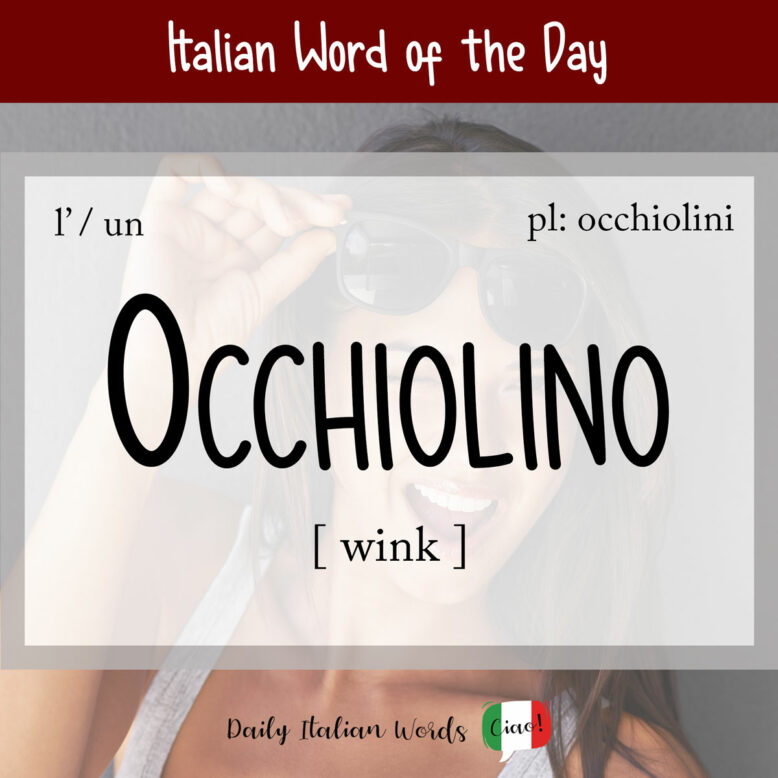The act of quickly closing and opening one’s eye while leaving the other eye open is known as an occhiolino in Italian or wink in English. It is usually performed in such a way that only the recipient notices it.
occhiolino
wink

Occhiolino is a masculine noun that takes the following definite and indefinite articles:
- l’occhiolino = the wink
- gli occhiolini = the winks
- un occhiolino = a wink
- degli occhiolini = some winks
It is also the diminutive form of occhio (eye), so it literally means small eye. Its usage is mostly limited to the expression fare l’occhiolino which means to wink.
There are many reasons one interlocutor might wink at another:
- to indicate that something is a joke (scherzo) or a secret (segreto)
- to show affection (affetto) or physical attraction (attrazione fisica)
- to greet (salutare) another person
- to show malicious intent (intenzione maliziosa)
Le ho fatto l’occhiolino per farle capire che stavo dalla sua parte.
I winked at her to let her know I was on her side.
Interestingly, occhiolino isn’t the only way to say wink in Italian. In addition to the alternative diminutive form occhietto, there is also the term ammiccamento. Although they are considered synonyms, ammiccamento is used only when there is a clear understanding or agreement between the two interlocutors. It is also used in medical terms to indicate the rapid and momentary closure of the eyelids as a defence reflex.
You may also encounter the term strizzata / strizzatina d’occhio which literally means squeezing of the eye.

Some synonyms for the expression fare l’occhiolino include:
- fare l’occhietto
- ammiccare
- strizzare l’occhio
A less common meaning for fare l’occhiolino when directed at a thing rather than a person is to look longingly at. For example:
Lucia sta facendo l’occhiolino alla borsa di Gucci.
Lucia is looking longingly at the Gucci bag.
A blink, on the other hand, is known as a battito di ciglia (lit: beat of eyelashes) whereas the verb to blink translates as battere gli occhi (lit: to beat the eyes) or sbattere le palpebre (lit: to bang the eyelids).
Heather Broster is a graduate with honours in linguistics from the University of Western Ontario. She is an aspiring polyglot, proficient in English and Italian, as well as Japanese, Welsh, and French to varying degrees of fluency. Originally from Toronto, Heather has resided in various countries, notably Italy for a period of six years. Her primary focus lies in the fields of language acquisition, education, and bilingual instruction.


